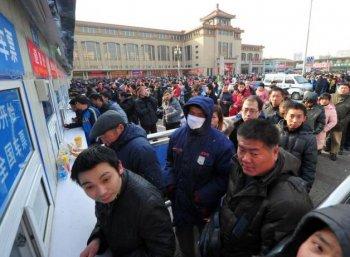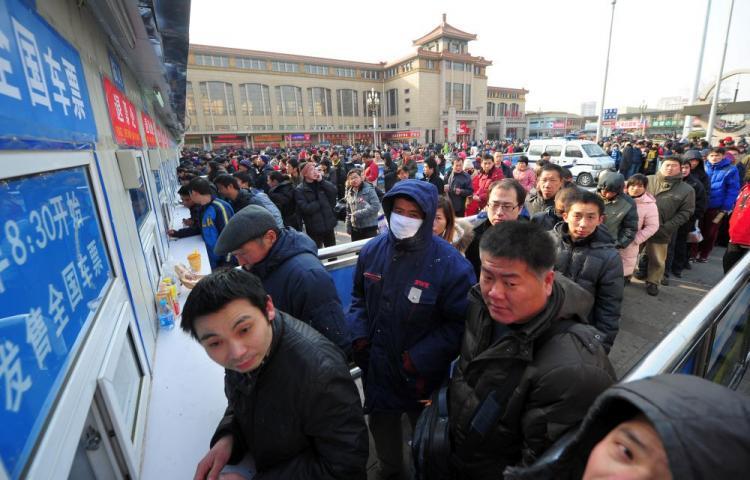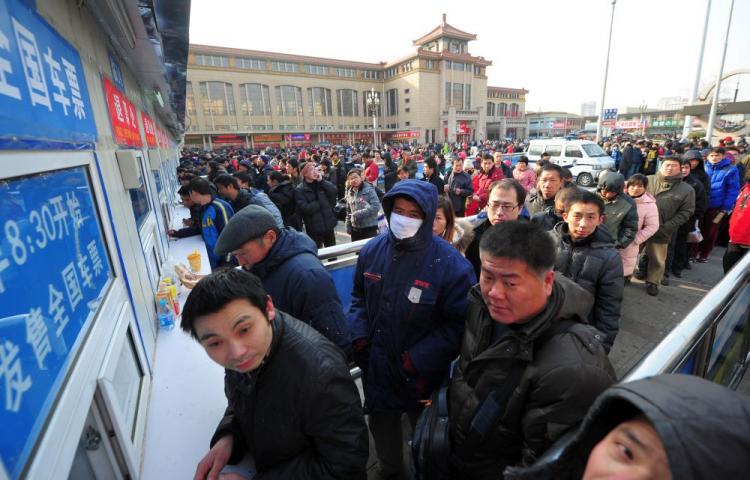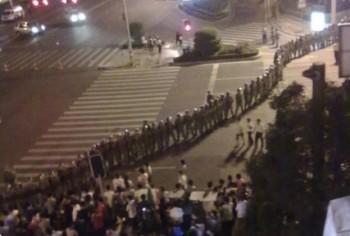Chinese New Year Travel Rush Kicks Off in China
The world’s biggest annual migration of people officially kicked off in China on Jan. 19.

People wait in line to buy train tickets at Beijing Railway Station on January 22, 2011. The world's biggest annual migration of people is underway in China as millions of travellers across the country journey home for the Lunar New Year celebrations. Frederic J. Brown/AFP/Getty Images
|Updated:





